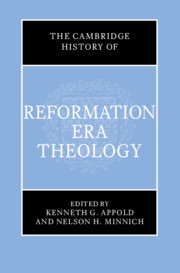Book contents
- The Cambridge History of Reformation-Era Theology
- The Cambridge History of Reformation-Era Theology
- Copyright page
- Contents
- Figures
- Acknowledgments
- Contributors
- Abbreviations
- Introduction
- Part One Theology in an Age of Cultural Transformation
- 1 The Printing Press and its Impact on the Production, Proliferation, and Readership of Theological Literature
- 2 Humanism and Theology
- 3 The Changing Role of the Bible in Theological Discourse
- 4 The Regulation of Theology in the Reformation Era
- 5 Political Change and Theological Discourse
- 6 Universities, Monastic Studia, Academies, Seminaries, and Catechesis
- 7 Para-Academic Theology: Theology of the “Uneducated”
- 8 Gender and Theology in the Reformation Era
- 9 The Theologians and the Clergy: Who Were They?
- Part Two Schools and Emerging Cultures of Theology: Diversity and Conformity within Confessions
- Part Three Topics and Disciplines of Theology
- Index
- References
7 - Para-Academic Theology: Theology of the “Uneducated”
from Part One - Theology in an Age of Cultural Transformation
Published online by Cambridge University Press: 27 September 2023
- The Cambridge History of Reformation-Era Theology
- The Cambridge History of Reformation-Era Theology
- Copyright page
- Contents
- Figures
- Acknowledgments
- Contributors
- Abbreviations
- Introduction
- Part One Theology in an Age of Cultural Transformation
- 1 The Printing Press and its Impact on the Production, Proliferation, and Readership of Theological Literature
- 2 Humanism and Theology
- 3 The Changing Role of the Bible in Theological Discourse
- 4 The Regulation of Theology in the Reformation Era
- 5 Political Change and Theological Discourse
- 6 Universities, Monastic Studia, Academies, Seminaries, and Catechesis
- 7 Para-Academic Theology: Theology of the “Uneducated”
- 8 Gender and Theology in the Reformation Era
- 9 The Theologians and the Clergy: Who Were They?
- Part Two Schools and Emerging Cultures of Theology: Diversity and Conformity within Confessions
- Part Three Topics and Disciplines of Theology
- Index
- References
Summary
The Reformation began, and arguably ended, as the work of learned theologians. Yet, for a brief period of time, it gave unprecedented opportunity to uneducated lay people to voice their theological opinions publicly, and the echoes of this activity continued through much of the long Reformation.
- Type
- Chapter
- Information
- The Cambridge History of Reformation Era Theology , pp. 123 - 133Publisher: Cambridge University PressPrint publication year: 2023

